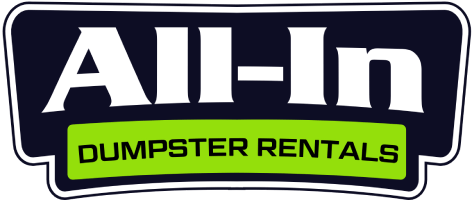Community cleanup projects are a fantastic way to beautify neighborhoods across Asheville and Western North Carolina. But what many homeowners don’t realize is that coordinating with neighbors can significantly reduce waste disposal costs while fostering community spirit. As cooler fall weather approaches, neighborhood cleanups become increasingly popular in our mountain communities – making this the perfect time to explore cost-sharing options for dumpster rentals.
Here in Asheville, we’ve seen firsthand how shared dumpster rentals transform neighborhood projects. Just last month, the historic Montford neighborhood organized a weekend cleanup where five households split the cost of a single 15-yard dumpster, saving each family nearly 70% compared to individual junk removal services. The Blue Ridge Mountains provide a stunning backdrop for our communities, but they also present unique challenges for waste management that make neighborhood cooperation particularly valuable.
Why Consider Sharing a Dumpster?
Beyond the obvious financial benefits, sharing dumpster costs offers several advantages that many Asheville residents might not have considered. When neighbors collaborate on waste management, the entire street or block benefits from a coordinated cleanup effort.
Cost savings stand out as the primary benefit. A standard 10-yard dumpster in the Asheville area typically costs between $250-350 for a week-long rental. When split among 3-5 households, each family might pay just $50-100 for access to professional waste disposal. Compare this to individual junk removal services that often start at $200 for even small loads.
Environmental impact is another important consideration for our eco-conscious mountain communities. Coordinating a single dumpster delivery and pickup reduces the carbon footprint compared to multiple smaller waste disposal trips. This aligns perfectly with Asheville’s strong environmental values and commitment to sustainability.
Perhaps most importantly, shared cleanup projects strengthen neighborhood bonds. In communities like Kenilworth, Oakley, and West Asheville, we’ve seen how weekend cleanup events transform into impromptu block parties, with neighbors helping each other tackle larger projects while getting better acquainted.
How to Organize a Neighborhood Dumpster Share
Successfully coordinating a shared dumpster rental requires some planning, but the process is straightforward. Here’s a practical approach based on what works well in Asheville neighborhoods:
Start by gauging interest among your immediate neighbors. A quick conversation over the fence or a simple note in mailboxes can identify who might benefit from a shared cleanup project. Neighborhood social media groups have become particularly effective for organizing these efforts in communities like Haw Creek and Beaverdam.
Once you have interested participants, assess the total waste volume needed. This helps determine the appropriate dumpster size. For most neighborhood shares involving 3-5 homes, a 10-yard or 13-yard dumpster provides sufficient capacity without excessive costs. For larger community efforts, the 15-yard option offers maximum value.
Establish clear guidelines before the dumpster arrives. This should include a schedule for when each household can use the dumpster, weight limit awareness, and prohibited items. Remember that certain materials like electronics, tires, and hazardous waste require special disposal even in Asheville. The Buncombe County landfill on Panther Branch Road provides alternative disposal options for these items.
Choose a strategic placement location that offers convenient access for all participating neighbors while meeting municipal regulations. In Asheville’s older neighborhoods with narrow streets, proper placement becomes especially important. The dumpster should be placed on a flat, solid surface – ideally a driveway or parking area that won’t block traffic.
Cost Structure and Payment Collection
Transparent financial arrangements prevent misunderstandings among neighbors. While there are several approaches to splitting costs, we’ve found these methods work particularly well in Asheville neighborhoods:
Equal splits work best when all households have roughly similar disposal needs. For example, if five neighbors rent a $300 dumpster, each contributes $60 regardless of how much space they ultimately use. This simplicity makes it popular for casual neighborhood arrangements.
Usage-based contributions allow for fair cost distribution when disposal needs vary significantly. One approach is to divide the dumpster into sections (perhaps marked with tape or chalk) proportional to each household’s financial contribution. A neighbor paying for 25% of the cost gets access to 25% of the space.
Consider appointing a coordinator who collects payments beforehand and handles the rental agreement. Digital payment apps make this process nearly frictionless. When working with local companies like All-In Dumpster Rentals, having a single point of contact simplifies scheduling and ensures clear communication.
Timing Your Neighborhood Cleanup
Seasonal considerations play a significant role in the success of community cleanup projects in Western North Carolina. Our region’s distinct seasons each present unique opportunities:
Spring cleanups (April-May) coincide with traditional spring cleaning and yard preparation. These are perfect for clearing winter debris, garden prep, and general household decluttering. The post-winter period often reveals accumulated yard waste that neighbors can collectively address.
Fall projects (September-October) work exceptionally well in Asheville due to moderate temperatures and the natural pre-winter cleanup cycle. As leaves begin to fall and residents prepare for winter, it’s an ideal time to clear gutters, trim trees, and remove summer project debris before the holiday season.
Weekend scheduling typically works best for maximum participation. Consider timing your dumpster delivery for Friday morning, allowing full weekend access before Monday pickup. This timeline accommodates most working households while minimizing the time the dumpster occupies shared space.
Navigating Potential Challenges
Even well-organized neighborhood projects can encounter obstacles. Anticipating common issues helps ensure a smooth experience:
Overflow management becomes important if disposal needs exceed expectations. Have a contingency plan for excess waste, such as identifying who will be responsible for additional disposal costs or arranging for an extra pickup. Local waste management companies are generally accommodating if given adequate notice.
Weather considerations matter in our mountain climate. Asheville’s afternoon thunderstorms during summer months can interrupt outdoor cleanup work. Consider placing tarps or covers nearby to prevent rainfall from saturating dumpster contents, which can lead to increased weight charges.
Setting clear rules about prohibited items prevents complications. Many first-time dumpster users don’t realize that certain items incur additional fees or require special handling. Common prohibited items include paint, chemicals, appliances containing freon, electronics, and tires. Share this information with all participants before the cleanup begins.
Building Community Through Collaborative Cleanup
Beyond the practical benefits, shared cleanup projects strengthen community connections in meaningful ways. Many Asheville neighborhoods have expanded these events into broader community-building opportunities:
Consider combining your cleanup with a neighborhood cookout or potluck. After a productive morning of work, a shared meal celebrates accomplishments while fostering conversation and connection. Several North Asheville communities have established this as an annual tradition.
Some neighborhoods create informal skill-sharing networks during cleanup weekends. The neighbor with a pickup truck helps with larger items, while someone else might offer the use of specialized tools. These exchanges often lead to ongoing neighborhood cooperation beyond the cleanup itself.
Document your community success with before-and-after photos shared in neighborhood groups or local community pages. This not only celebrates your accomplishment but might inspire other Asheville neighborhoods to organize similar events.
Working With Local Dumpster Providers
Choosing a local, community-focused dumpster provider makes a significant difference in your experience. As a family-owned business serving Asheville and surrounding communities, we’ve seen how the right partnership enhances neighborhood projects.
Local companies understand Asheville’s unique neighborhoods and their specific challenges. From the steep driveways of Town Mountain to the historic districts with limited access, experienced providers can recommend appropriate dumpster sizes and placement options tailored to your location.
Flexible scheduling accommodates community-based projects. When organizing multiple households, having a provider willing to work with your specific timeline becomes invaluable. Look for companies offering weekend service and responsive communication.
Ask about community or multi-family discounts. Some local providers offer special rates for neighborhood cleanup projects, recognizing their value to the broader community. These savings can make shared rentals even more affordable for all participants.
Beyond Residential: Expanding to Broader Community Initiatives
Some neighborhood dumpster shares have evolved into larger community service initiatives across Western North Carolina. These expanded projects demonstrate the powerful impact of collaborative waste management:
Neighborhood associations in communities like Oakley and Kenilworth have organized quarterly cleanup days where residents tackle common areas and help elderly or disabled neighbors with property maintenance. These events typically center around strategically placed shared dumpsters.
Environmental focus groups have coordinated stream and roadside cleanups along the French Broad River and Blue Ridge Parkway access points, using shared dumpsters to collect the gathered waste. These projects directly improve our region’s natural beauty while protecting water quality.
Consider whether your initial neighborhood share might grow into something more substantial. Many of Asheville’s most successful community initiatives began as simple neighbor-to-neighbor cooperation.
Becoming Neighborhood Cleanup Champions
As your shared dumpster project concludes, consider how this experience might lead to ongoing neighborhood improvement efforts. Many of our customers have found that initial cleanup projects spark continued collaboration:
Create a simple neighborhood maintenance schedule where seasonal tasks are tackled collectively. Spring brush clearing, summer storm cleanup, fall leaf collection, and winter storm preparation can all benefit from shared resources and manpower.
Establish a neighborhood tool-sharing program where specialized equipment used during cleanups remains available to all participants. This might include pressure washers, chainsaws, or lawn equipment that not every household needs to own individually.
Document your process and lessons learned to make future collaborations even more effective. Many neighborhood groups in the Asheville area maintain simple shared documents with vendor contacts, cost breakdowns, and organizational tips for recurring cleanup events.
Your successful shared cleanup creates a template that can be repeated seasonally or annually, building stronger community bonds with each iteration. What begins as a practical cost-saving measure often develops into a valued neighborhood tradition.
Whether you’re organizing your first neighborhood dumpster share or looking to improve an established community cleanup program, remember that the benefits extend far beyond waste removal. In Asheville’s close-knit communities, these collaborative efforts reinforce our mountain town’s spirit of cooperation and care for our shared environment.

